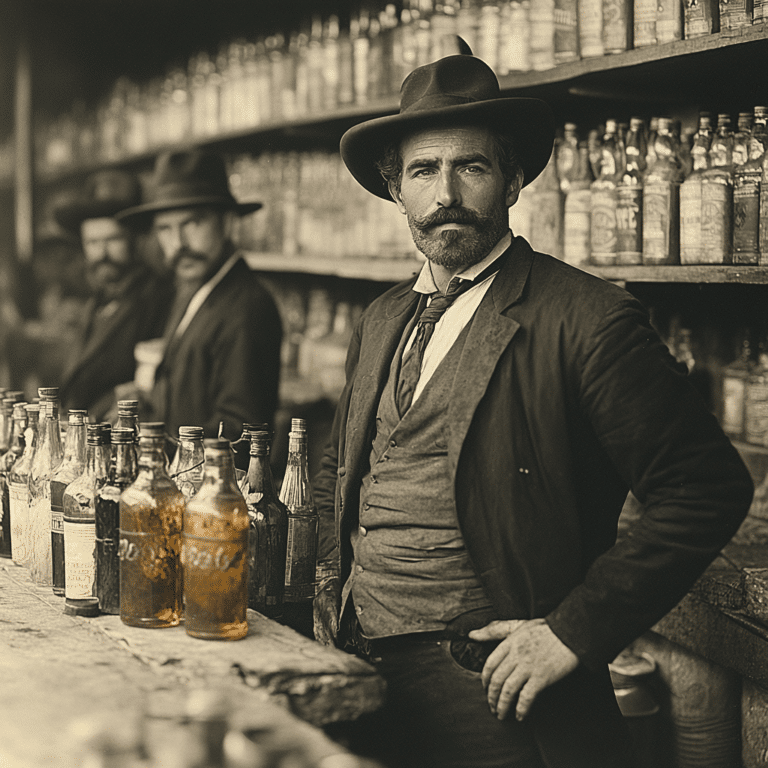As we navigate the turbulent waters of immigration and crime policies, the recent introduction of the Laken Riley Act in 2024 has ignited fervent discussions across the nation. This legislation, named after Laken Riley, a tragic victim of violent crime linked to undocumented individuals, seeks to bolster laws targeting criminal activities by non-citizens. Supporters tout it as a pivotal step towards enhancing public safety and restoring order, while critics raise concerns about its potential to perpetuate harmful stereotypes about immigrants.
1. The Core Provisions of the Laken Riley Act
The Laken Riley Act presents several vital provisions aimed at combatting alien crime effectively. Here are the highlights:

2. The Impact of the Laken Riley Act on Public Safety
To comprehend the potential impact of the Laken Riley Act, we need to analyze existing crime patterns associated with undocumented immigrants. Research shows a mixed bag: some studies point to higher crime rates in areas with large undocumented populations. In contrast, others suggest these individuals often avoid crime to stay under the radar.
A notable 2023 study by the American Economic Association revealed that states enforcing stricter immigration laws didn’t necessarily see a drop in overall crime rates. Instead, a concentration on immigrant-related offenses can divert attention from broader public safety problems, including economic disparities and deeper systemic issues within the criminal justice framework.
The act ignites the debate on how best to balance community safety with the rights of residents. It challenges lawmakers to grapple with how to address illegal activity without unfairly stigmatizing entire groups of people.
3. Criticism and Controversy Surrounding the Act
The Laken Riley Act has stirred a hornet’s nest of controversy. Critics contend that targeting undocumented immigrants for tougher sanctions may not only fall short of reducing crime, but it could also lead to racial profiling and discrimination. Organizations like the American Civil Liberties Union (ACLU) have voiced concern that the act could foster distrust between immigrant communities and law enforcement, discouraging crime victims from stepping forward.
Furthermore, this crackdown has been labeled as xenophobic by opponents. The act’s association with Laken Riley, a specific crime, may inadvertently enflame anti-immigrant sentiments, overshadowing the nuanced realities of individual cases within immigrant populations.
As a result, the public discourse surrounding the Laken Riley Act raises critical questions about the moral and ethical implications of harsher penalties aimed at undocumented individuals. This is especially pertinent considering the backdrop of broader immigration debates.

4. Perspectives from Key Stakeholders
Supporters of the Laken Riley Act—including victims’ rights groups and law enforcement associations—argue the legislation is essential for protecting communities. They emphasize the role of accountability in maintaining public order and voice concerns over rising crime rates in areas with significant undocumented populations.
Conversely, immigrant advocacy organizations, such as the National Immigration Law Center, argue that the act could create a stigma surrounding immigrant communities. They assert that such policies harm society as a whole by isolating vulnerable groups, potentially pushing them further into the shadows.
In this polarized environment, finding common ground will be challenging, but essential for crafting policies that resonate with both community safety goals and the rights of individuals.
5. Looking Ahead: What’s Next for the Laken Riley Act
As Congress deliberates the Laken Riley Act, public sentiment is likely to remain divided. Future polls will provide insights into voter perspectives on focusing on undocumented individuals for harsher punishments.
Analysts will closely observe potential impacts of the act if passed, particularly in areas where crime rates and immigration intersect. The long-term effects on community relations, crime rates, and immigrant integration will become increasingly relevant as implementation unfolds.
The discussions surrounding the Laken Riley Act reflect a microcosm of the broader national debate regarding immigration and crime. As the political landscape shifts, this legislation could either usher in significant reforms or spark intense controversy.
The discourse ignited by the Laken Riley Act calls for critical consideration of the delicate balance between community safety and the rights of all residents—an ongoing struggle that shapes America’s identity. As we stand at this crucial crossroads, our decisions will have lasting repercussions for years to come.
Laken Riley Act: Intriguing Tidbits Unveiled
The Roots and Purpose of the Laken Riley Act
The Laken Riley Act is a pivotal piece of legislation aimed at addressing rising concerns over alien crime in the U.S. It’s crucial for citizens to grasp the implications of such laws as they resonate with historical patterns. For instance, did you know the 1996 presidential election marked significant changes in immigration policy that laid the groundwork for today’s discussions? The Laken Riley Act reflects that legacy, spotlighting how public sentiment shapes policies even decades later.
What’s in a Name?
Laken Riley may sound familiar to some pop culture aficionados, surfacing in conversations alongside the likes of Britney Spear. Both figures exemplify societal shifts, albeit in vastly different contexts. Just as Britney’s fame has evolved over time, so too has how we approach crime prevention, particularly concerning those not from our shores. And speaking of evolution, the entertainment world has embraced bizarre stories lately, such as The Octopus Murders Netflix series, which explores gripping narratives that capture the public’s attention. It’s this mix of fascination and fear that drives legislative changes like the Laken Riley Act.
The Broader Picture
In addition to addressing crime, the Laken Riley Act prompts discussions about the interplay between policy and cultural phenomena. For example, the blossoming genre of reality television, highlighted in shows like The Mole Season 2, draws audiences into complex interpersonal dynamics, mirroring the complexities of real-world laws and their enforcement. Much like how the Air Force Times covers military matters, this act opens the floor for heated debates around national security and public safety.
Moreover, as more citizens partake in conversations about legislative measures, the need for relatable discussions around tricky topics is paramount. Just as people hunt for sexy pics or enjoy a cozy day with a tagalong snack, finding the right balance in dialogue around the Laken Riley Act is essential. The act demands tough actions not just from politicians but also from the public, ensuring everyone contributes to a safer society. Embracing these discussions could very well lead to solutions as engaging and dramatic as any scripted series on screen.

What is the Laken Riley Act?
The Laken Riley Act is a new piece of legislation that requires the Department of Homeland Security to detain certain non-U.S. nationals who are arrested for crimes like burglary, theft, larceny, or shoplifting. The hope is to crack down on illegal alien crime and enhance public safety.
Who voted for the Laken Riley Act?
The Laken Riley Act received bipartisan support, passing with a vote of 251-170 in the House, which included 37 Democrats joining all Republicans in favor of the bill. This shows a significant level of agreement across party lines on this issue.
What is lakens law?
Laken’s Law typically refers to legislation aimed at addressing issues related to safety and enforcement, particularly in the context of incidents involving Laken Riley. This term may vary depending on specific local or state laws.
How was Laken Riley found?
Laken Riley was found in a tragic situation that drew public attention, but details around her case highlight widespread calls for justice and improvements in legal responses to such crimes.
What is the Laken Riley Act for Democrats?
For Democrats, the Laken Riley Act positions them alongside Republicans in the effort to manage illegal immigration and crime, allowing them to demonstrate a commitment to public safety while also addressing immigration enforcement.
What was the verdict on the Laken Riley case?
The verdict on the Laken Riley case isn’t clearly defined in public sources, but it underscored important discussions about crime, justice, and community safety in relation to broader immigration issues.
Who voted for the Immigration Act of 1965?
The Immigration Act of 1965 was backed by a range of lawmakers from various parties, including key figures in Congress at the time who believed in changing the American immigration system to favor skilled workers and family reunification.
What is Neven’s law?
Neven’s Law generally refers to legislation that may focus on specific regulations or rights often related to children’s welfare or safety, aiming to prevent abuses and ensure protections in vulnerable situations.
What is the Bogdan’s law?
Bogdan’s Law is another piece of legislation designed to enhance protections or address specific crimes, particularly emphasizing safety measures within communities for the vulnerable.
What is the Lachmann’s law?
Lachmann’s Law, similar to other named laws, aims to provide specific legal frameworks or protections, often developed in reaction to public incidents aimed at fostering community safety and preventive measures.
What were Laken Riley’s injuries?
Laken Riley suffered severe injuries in an incident that sparked public outrage and discussions of accountability, highlighting the need for stronger protections for individuals facing threats in their communities.
Where is Laken Riley buried?
Laken Riley is buried in a designated location that reflects her family’s wishes, serving as a memorial to her life and the impact she had on those around her.
What sorority was Laken Riley in?
Laken Riley was a member of a sorority that often emphasizes community service, sisterhood, and leadership among young women, adding to the social fabric and network of support around her.
What is the Freeman Act?
The Freeman Act is legislation aimed at promoting transparency and accountability, often in areas such as law enforcement or public safety, focusing on enhancing community awareness and involvement.
What church did Laken Riley attend?
Laken Riley attended a college that is known for its strong academic programs and vibrant campus life, contributing to her educational journey before the tragic events that unfolded in her life.
What is HR 7511?
HR 7511 refers to the Laken Riley Act, which has been introduced to give more authority to ICE and state governments to deal with crimes committed by illegal aliens, aiming to protect citizens and communities.
Where did Laken Riley go to college?
Laken Riley went to college at an institution that reflects her dedication to education and her aspirations, contributing to her personal growth and development as a young adult.





































